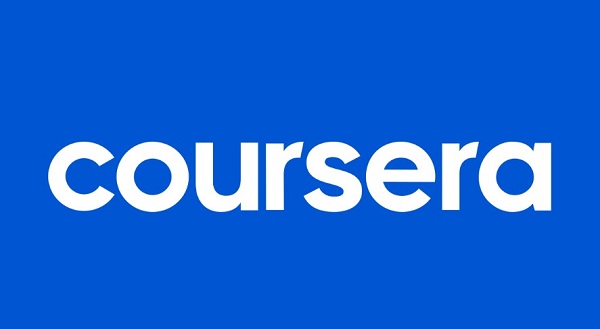
Online digital skills forum Coursera and the Federal Government have entered into a partnership to launch a free, nationwide digital training programme through the Ministry of Communications and Digital Economy (FMoCDE) towards the implementation of the digital economy mandate.
While declaring the launch of the training sessions open to the public on behalf of President Muhammadu Buhari, the Minister of Communications and Digital Economy, Prof. Isa Pantami said championing a paradigm shift of prioritising hard, soft and social skills over theory will enhance the speed of digitisation processes for the development of the economy.
The minister acknowledged Coursera as one of the world’s top, online learning platforms, hosting thousands of courses for some of the best universities and companies, and has remained at the forefront of providing the global society with the education and resources it needs to build and maintain digital systems.
Pantami assured of the Federal Government’s support towards an enabling digital economy through the various empowerment programmes geared at positioning the nation’s citizens for the Fourth Industrial Revolution.
“The recent memorandum of understanding (MoU) entered into with Microsoft to train five million Nigerians in various fields of technology, is part of the government’s attempt to fulfil the requirements for digital transformation as laid down in the Nigeria Digital Economy Policy and Strategy (NDEPS) document,” he said.
Also, Pantami implored Coursera to expand its presence to Nigeria, especially in academia, where it has an existing partnership with Covenant University.
“Coursera is in partnership with Covenant University, one of the best private universities in Nigeria based on their annual rankings and publications which I have keenly observed. I do not doubt that this partnership has had a huge impact on the institution’s excellent standing. I, therefore, request that Coursera engage more academic institutions – at least one – in each geo-political zone and bring their expertise to bear within the identified environments,” he said.
On his part, the director-general of NITDA, Mallam Kashifu Abdullahi expressed his excitement about the partnership as he revealed the benefits associated with the opportunity.
He stated that the collaboration would position Nigerians in bridging the talent gap that has risen due to the global adoption of digital transformation tools and channels for economic development.
“Ironically, there are unemployment and unfilled job vacancies. Globally, there are more than 30 million unfilled jobs but, still, we have a high rate of unemployment even in Nigeria. In the last two months, there has been a massive resignation from the banking sector, with most of the IT experts relocating to take up IT-related jobs or joining the FINTECH [sector].”
The NITDA boss affirmed that the present administration has built its premise on social investment which is part of investing in the Nigerian people.
“Government started its diversification by investing in people through massive capacity-building programmes, provision of interventions for people to establish their businesses, using both online and physical channels of learning environments.”
While emphasising the importance of the National Digital Economy Policy and Strategy (NDEPS) of the Ministry of Communications and Digital Economy as the foundational guide that contains over 19 policies that would enable the national broadband plan to bridge the connectivity gap, Abdullahi noted that NITDA structured its Strategic Pillar and Action Plan (SRAP) towards the implementation of the NDEPS.
“We have digital literacy and capacity-building as a strategic pillar to complement the National Digital Literacy framework, in achieving the Buhari administration’s ambitious target of 95 per cent digital literacy by 2030. Hence, this is one of the initiatives that we are implementing, to train 1 million developers within 18 months.”
He further explained why the agency is focusing on training developers, based on the PwC research that a developer earns between $US 27000 and $US135,000. “If we can have 2 million developers working remotely in Nigeria [and] earning at least $US20,000 per annum, Nigeria can generate $US40 billion per annum [and] this would invariably solve the nation’s forex challenge.”
He added that the government has set a target for digitising its services through the implementation of e-government policies; therefore, digital empowerment is necessary to promote the digital transformation agenda.
Abdullahi confirmed that the launch of the partnership with Coursera would enable the training of 24,000 Nigerians.
He said he was optimistic that this is just the beginning of future collaborations. He also mentioned other collaborations that are presently in place, like Google, which is set to train 500,000 developers; VSV Academy to train over 100,000 in blockchain and other collaborations with NGOs to train people in artificial intelligence and other emerging technologies, to meet the target of training 1 million developers.
Earlier, in her welcome address, the Ag. director, digital literacy and capacity development, NITDA, Dr. Amina Sambo provided insights to those eligible to benefit from this training.
She said nominations from ministries, departments and agencies (MDAs), job seekers, nominations from corp members across the 36 states of the Federation and students in higher institutions. She asserted that training on the identified skill gaps would help Nigeria excel in the modern workforce such as analysis of services security, machine learning, software engineering and other entrepreneurship skills.
In his remarks, the director of international government, Coursera, Mr. Matthew Klein said two trends are colliding globally and he agreed with the NITDA director-general’s submission that there is a talent gap which emphasised the need for the organisation’s support.
He affirmed that over 1.4 million Nigerians are actively learning on Coursera today and the careers they are looking for are in high demand globally.


